This Peace, Justice, and Human Rights course explores the ethics, politics, and practice of oral history as an activist research methodology, and is focused on the theory, practice, and ethics of documenting oral histories.
-
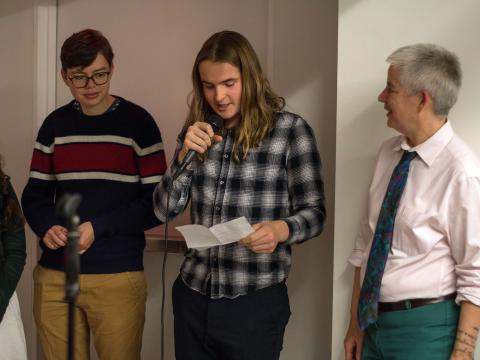
-

This psychology seminar examines the theory and research of stress and coping processes and their links with disease and mental health, and includes an experiential learning component in which students learn stress-management techniques.
-
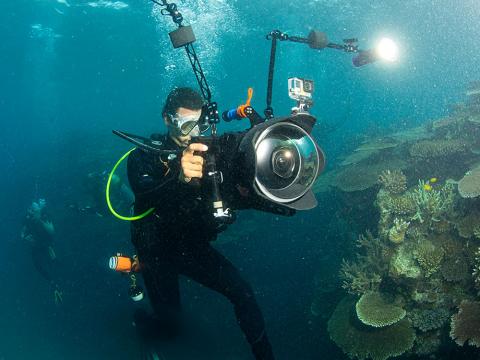
This semester the Biology Department launched its first film series to “spark a conversation about biological themes and how students can get involved in research early during their time at Haverford.”
-

This class in the Department of Religion on early Jewish and Christian apocalyptic literature explores the social functions of apocalyptic and ask why this form has been so persistent and influential.
-
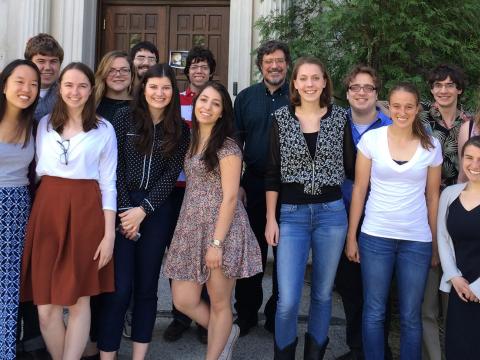
A "Biochemistry Superlab" course co-taught by Professor Rob Fairman and Assistant Professor Lou Charkoudian recently published a peer-reviewed paper in PLOS Biology detailing not only the results of in-class research, but also how the class itself was designed to facilitate such research.
-
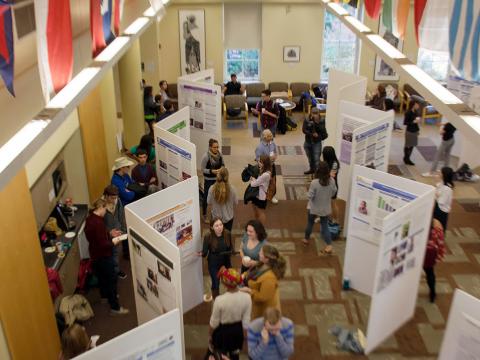
For students returning from internship experiences who wish to deepen their understanding of social justice and healthcare, this course integrates experiential learning with readings on cultural conceptions of health, structural determinants of health, and addressing health inequalities in the United States and other countries.
-

Highlighting faculty professional activities, including conferences, exhibitions, performances, awards, and publications.
-
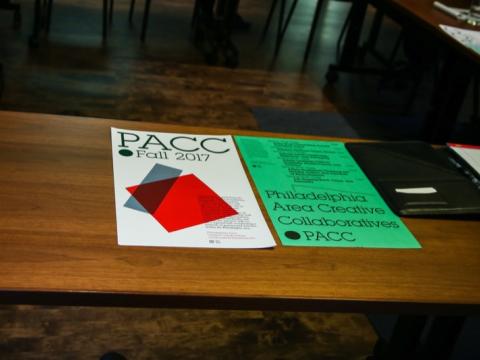
A new program out of the VCAM building facilitates classroom connections to Philadelphia and local artists.
-

This course, which is crosslisted in both comparative literature and peace, justice, and human rights, investigates what permanent surveillance meant and means historically and today for society at large and for individual artists living under its pressure.
-

Award-winning poets Joan Larkin and Robert Hershon read a selection of their work last week at an event organized by Visiting Assistant Professor of English Thomas Devaney and sponsored by creative writing programs at Haverford College, Swarthmore College, and the Hurford Center for the Arts and Humanities.
-
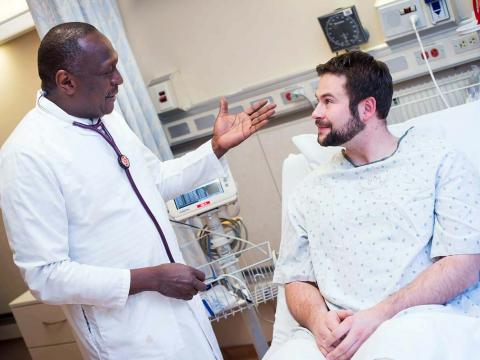
This course explores the important issues of health and healthcare from an economic perspective, including the roles and perspectives of individuals, providers, insurers, and governments, and how their decisions are shaped by different economic, political, and ethical motivations.
-

The two-decade-old tradition, which invites community members to enjoy film, music, and speakers encompassing all things Yiddish every semester, welcomed queer, Yiddish, anarchist band Koyt Far Dayn Fardakhtn, featuring bassist Rose Kaplan-Bomberg ’10, to campus.
-

Haverford hosted scholars, activists, educators, and creators for a symposium on extending the guarantees of human rights policy more broadly.
-

This course in the Department of Religion investigates the range of meanings attributed to the term “yoga” over 2,000 years and across multiple geographical and cultural communities.
-

The professor of economics has earned a year of support for her research into the current magnitude and character of occupational exit of scientists and engineers in the U.S.